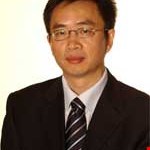The current furniture manufacturing has been slow to adopt the latest manufacturing technologies, relying heavily upon specialised conventional machinery. This approach requires high levels of specialist knowledge, training and capital investment. It also suffers from significant subtractive manufacturing waste and high logistics costs due to centralised manufacturing, with high levels of furniture product not re-cycled or re-used. According to an RSA report, more than 600,000 tonnes of furniture per annum are disposed of in the UK and only 34% of which is recycled in any way.
This project aims to address the above problems by stepping outside of commercial constraints and introducing suitable digital manufacturing technologies to create step changes in furniture manufacturing design since it is reported that 80% of environmental impact is built in at the design stage.
The project will carry out critical thematic review and examine multifaceted and interlinked influences, including:
- Environmental mega trends and legislation;
- Smart material design for sustainable products using digital technologies;
- Additive manufacturing technologies and their scaled manufacturing potentials;
- Creation of sustainable ‘mass customisable’ furniture product concepts using digital robot manufacturing technologies.
The problem solving methodology based upon TRIZ will be used to critically examine and resolve issues and conflicts, developing new approaches to digital furniture design and manufacture. The identified solutions will then be simulated, evaluated and physically manufactured as prototypes.
The impact of this research will be to demonstrate sound methodology and practical solutions to the challenges of sustainable furniture manufacturing with significant reduction of waste and significant increase of reuse and recycle of furniture, thus contributing to the development of a circular economy.
Meet the Principal Investigator(s) for the project

Dr Qingping Yang - Dr QingPing Yang is currently the Group Leader for Brunel Quality Engineering and Smart Technology (QUEST) Research Group and Robotics and Automation Research Group.
Dr Yang joined the Brunel Centre for Manufacturing Metrology (BCMM) in 1988 with a visiting scholarship awarded by the AVIC, after his graduation in Instrumentation and Measurement Technology from Chengdu Aeronautical Polytechnic in 1983 and subsequent 4 years’ research experiences at an Aircraft Structure Research Institute (AVIC, Xi’an) and admission to an MSc Programme in Robot Control and Intelligent Control at Northwestern Polytechnical University. In 1989, he was awarded an ORS Award and a PhD Studentship from British Technology Group to develop a patented smart 3D high precision probe system for CMMs, and he received his PhD degree in October 1992.
Since then he has been working as a Research Fellow, Lecturer/Senior Lecturer/Reader (Associate Professor) at Brunel University London. He has actively participated in 15 (11 as Principal Investigator) research projects funded by the UK government, EU and industrial companies, with a total funding of about £2.5 million as Principal Investigator and £888K as Co-Investigator. Through more than 30 years dedicated research, he has developed a unique and coherent research field broadly integrating three research areas of sensor/measurement systems, quality engineering and smart technologies (including AI and robotics) with rigorous theoretical foundation, addressing the core science and technology underpinning these areas. He has published more than 110 journal/conference papers, 5 book chapters and 3 patents (one patent successfully assigned for commercial exploitation in 2004) in these areas. He has supervised (as the 1st supervisor) 20 PhD and 3 MPhil students with successful completion as well as 9 visiting academic staff / PhD students, and he is currently supervising one postdoctoral Research Fellow and 8 PhD students.
Dr Yang has received numerous prizes and awards for outstanding academic and work performance in the past (including three performance bonuses in Brunel University). He has been a member of IEEE and IET. He was profiled in the 15th edition of Marquis Who’s Who in the World (1998) and the 5th edition of Marquis Who’s Who in Science and Engineering (2000).
Partnering with confidence
Organisations interested in our research can partner with us with confidence backed by an external and independent benchmark: The Knowledge Exchange Framework. Read more.
Project last modified 15/07/2021